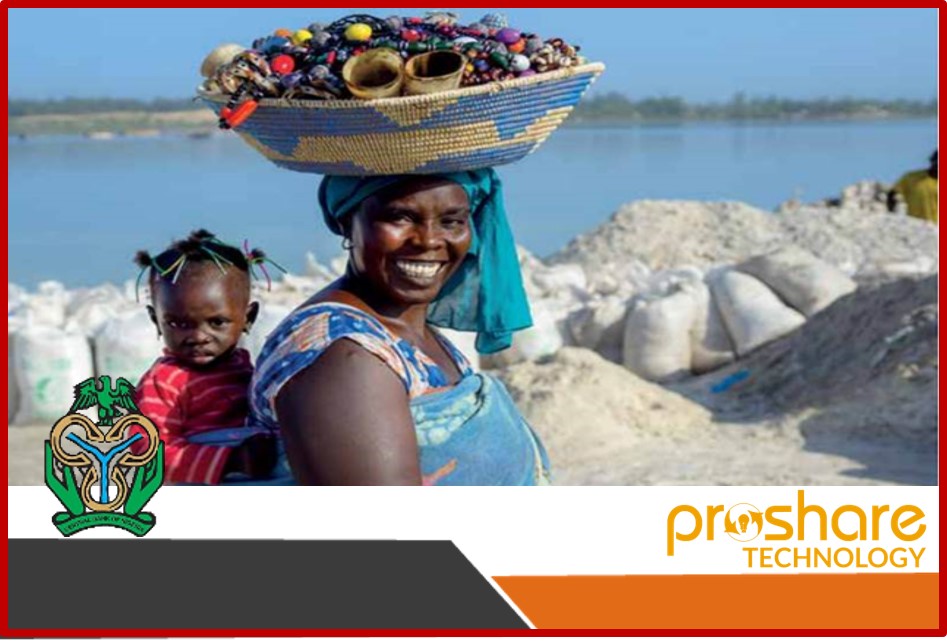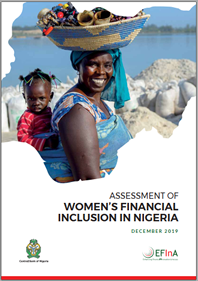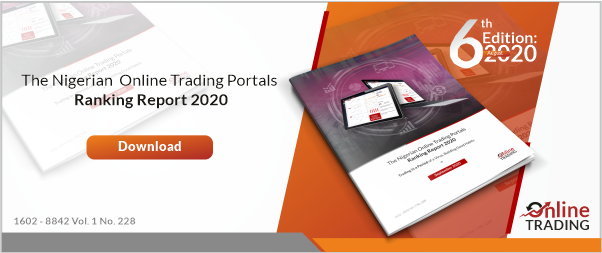Tuesday, September29, 2020 / 04:33 PM /by CBN / Header Image Credit: CBN, EFInA
This gender gap is larger than in most othercountries, and whilst financial inclusion is increasing for both men and women,the gender gap is widening.1 In contrast, comparator countries in Africa suchas Kenya, South Africa, Tanzania, and Uganda all exhibit a decreasing gendergap. The gender gap in Nigeria represents a major issue to be resolved if thecountry is to achieve the targets it set in its National Financial InclusionStrategy (NFIS).
Through the analysis of gender specific data, thisstudy seeks to better understand:
a) how usage, access, and supply of financial servicesdiffer between women and men in Nigeria,
b) what specific gaps and challenges impede Nigerianwomen's access to financial services, and
c) what can be done by CBN, EFInA and its partners toaddress the gender gap and reduce inequality
Ouranalysis found that the most important drivers of financial exclusion2 for bothgenders are lack of income, lack of education, and low trust3 in FinancialService Providers (FSPs) and that these factors also drive the gender gap.
Theyjointly explain 60% of lack of access for both genders. Because women havelower income, education, and trust levels than men, these factors also, to alarge extent, explain the gender gap in overall exclusion. In other words,women and men with similar levels of income, education, and trust in FSPs areapproximately equally likely to be financially excluded yet women typicallyhave much lower levels of income and education than men do. Income, education,and trust in FSPs are so important that the effects of other factors onexclusion-that are commonly believed to be strong and that are often the focusof interventions-are dwarfed by comparison.
Incomeand education are generally known to be gendered factors. Amongst others,socio-cultural drivers and gender expectations lead to women having lowerlevels of income and education then men. Thus, to overcome the gender gap infinancial inclusion, these gendered drivers should be understood and tackled asthe core binding constraints.
Genderplays a significant role in formal financial inclusion. Women are less likelyto be formally included than men, even when controlling for levels of income,education and trust. Given the NFIS's ambition to increase formal inclusion asthe preferred status, it is vital to look beyond absolute exclusion and tounderstand the gendered drivers of these differences when designinginterventions.
Threeadditional variables complement the dominant factors (levels of income,education and trust in FSPs) when looking at formal and informal-onlyinclusion. The first, mobile phone ownership, acts as a powerful predictor offormal financial inclusion. The second, location in rural areas, correspondswith a greater likelihood that individuals, even at higher levels of income andeducation, will rely only on informal services. And the third, marital status,has a complex and nuanced effect on informal-only inclusion.
Ourdiscussions with excluded women confirm that, even though they do havefinancial needs and ambitions, low income limits the need for financialservices that they themselves perceive.
Approximately half of the Nigerianpopulation earns less than 700 Naira per day, and those we spoke with did notfeel they had enough income to save, make investments, or take risks on loans.They devote the little income they have to living costs (e.g., food, rent,cooking fuel, and clothes), their children's education, and, occasionally,family and community events (e.g., births, weddings, and funerals). That is notto say that they have no need for relevant financial products and services. Forexample, structured savings solutions could support women's efforts to saveeffectively and manage their often competing daily needs. Similarly, financialproducts that enable traders to manage business purchases and savings couldease financial setbacks and help low-income populations in Nigeria,particularly women, avert volatility.
FSPs donot see a sufficient business case in serving the financially excluded, but theunderlying fact-base can be strengthened. Today's cost structures, licensingrequirements, and other operational considerations such as credit riskmanagement, combine with the existence of opportunities with a more attractiverisk-adjusted return to dissuade (most) FSPs from targeting low incomepopulations; they simply have more commercially attractive alternatives.Although FSPs consistently mention this lack of commercial viability, theextent to which lowcost solutions could be viable without improvinglivelihoods, is unknown. There is no in-depth insight into cost structures,opportunities for economies of scale, cost savings and joint investments, orthe ability and willingness of customers to pay. Each of these elements shouldbe understood in order to determine the actual gaps in commercial viability andto prioritise the interventions and innovations best suited to overcome thislack of viability.
Yet,creating that insight will be resource-intense and may require collectiveaction, as it is unlikely to be a responsible investment for any one singleprovider. Interventions focused on increasing and deepening women's financialinclusion must focus on three key areas to achieve sustainable change and maybe complemented by subsidy efforts to provide services in the meantime.
First,the focus of efforts to boost women's financial inclusion should shift beyondproduct innovation to address the underlying drivers of gender gaps, throughmore systematic efforts to address women's incomes and economic empowerment,education and boosting trust in FSPs.8 Our analysis suggest that these are keyto closing gender gaps and improving the financial inclusion of women. Second,ideally in parallel with the first point noted above, targeted collaborationacross stakeholders is needed to understand and identify options for improvingthe commercial viability of serving financially excluded women, even in theabsence of improved income, education, and trust in FSPs. Such effort wouldneed to outline the degree to which commercial viability is actually lackingand then determine interventions that could 'tip the balance'. Lastly,stakeholders who choose to provide financial products and services to excludedwomen who, despite efforts in the first two categories, do not presentcommercial viability (yet), must recognise that, until viability is reached,such services will require subsidies. In any case, product offerings must berelevant, not just 'aspirational', and must meet women 'where they are'. Theymust be suited to women's low current levels of income, education and trust inFSPs. Ideally, to achieve lasting impact, they should be designed to increasewomen's low current levels of income, education, and trust in FSPs.
Whenaddressing the gender gap in income, education and trust in FSPs, the highlycontextual, gendered, and multifaceted nature of these issues needs to beconsidered.
Income,education, and trust in FSPs are gendered and interlinked. For example,poverty, gender norms, and traditional practices, including early marriage,increase the risk of premature school dropout and unemployment, particularlyfor women. Nigeria exhibits a large gender gap in education9. The net enrolmentrate at the primary school level is 56% for girls and 61% for boys10. Thegender gap for completion widens from 9% in primary school to 14% in secondaryschool11. Because of patriarchal traditions, in some cultures, parents investin male children whom they recognise as future heads of households as opposedto girls whom they view exclusively as current and future homemakers12. Suchperceptions mean girls are more often burdened with household chores. Thislimits their capacity to regularly attend classes or pursue gainful employmentoutside of the home. Restricted access to education also impedes women's accessto high quality, well-paying jobs. As a result, women are more likely than mento be vulnerably employed or unemployed. In fact, their male counterparts arenearly twice as likely to hold wage-earning jobs.
Consequently,there is an urgent need for stakeholders to collaboratively identify andaddress the macroeconomic and sociocultural determinants of women's loweraccess to education and income-generating opportunities. Furthermore,stakeholders must understand the drivers of trust in FSPs, develop specificinterventions that effectively address the gender gap, and identify appropriatepathways for implementation of these solutions.
Targetedknowledge gaps have surfaced in this work, which should guide stakeholders inthe design and implementation of their interventions. This research hasquestioned fundamental assumptions and has not necessarily replaced those witha new set of 'answers'. Thus, a more in-depth understanding is needed of someof the factors and their effects, and specifically of some of the underlying,gendered drivers of these primary factors.
Related News - Data and Financial Inclusion
- Data Science Nigeria Wins the Best Poster Award at the Global EC20 Conference
- Firstbank Empowers Women Through Firstgem Online Community
- Identification Management: The Key to Digital and Financial Inclusion in Nigeria
- The Implication Of COVID-19 On Financial Inclusion And Financial Literacy
- CBi Nigeria to host Webinar focused on Nation Building and Data Management
- COVID-19 Rebound: Building Entrepreneurs and Supporting Financial Inclusion Through Xpress Point
- Regulatory Flexibility and Agency Banking Will Enhance Financial Inclusion in Nigeria - Henry Chukwu
- Ahead of Tomorrow on WebTV: Discussions on COVID-19; Deepening Financial Inclusion in Nigeria
- Ahead of Tomorrow on WebTV: Discussions on COVID-19; The Fourth Industrial Revolution and Nigeria
- COVID-19: Impact and Opportunities for Financial Services Agents in Nigeria
- Firstbank: Empowering Women through Financial Inclusion
- Mandatory Data Privacy Compliance for Nigerian Companies - A Data Audit Offer
- How Nigerian MFBs Use Digital Strategies To Deepen Financial Inclusion
- Digital Technology Will Enhance MFB Operations in Nigeria - Victor Mba
- Identifying The 4 Pillars for Achieving Nigeria's Financial Inclusion Target - Patrick Akinwuntan
- Accion 2019 Seminar Explores How MFBs Can Deepen Financial Inclusion
- How Africa's Fintech Industry Will Shape Financial Inclusion
- Accion MFB to Host its 3rd Annual Financial Inclusion Seminar on December 11th, 2019
- CBN Bankers Committee Celebrate 2019 World Savings Day Reaching 642 Schools In Nigeria
- DSN Launches First AI Book For Primary and Secondary Schools, To Deepen Technology In Nigeria
 Lagos, NG • GMT +1
Lagos, NG • GMT +1











 1158 views
1158 views









 Sponsored Ad
Sponsored Ad
 Advertise with Us
Advertise with Us









